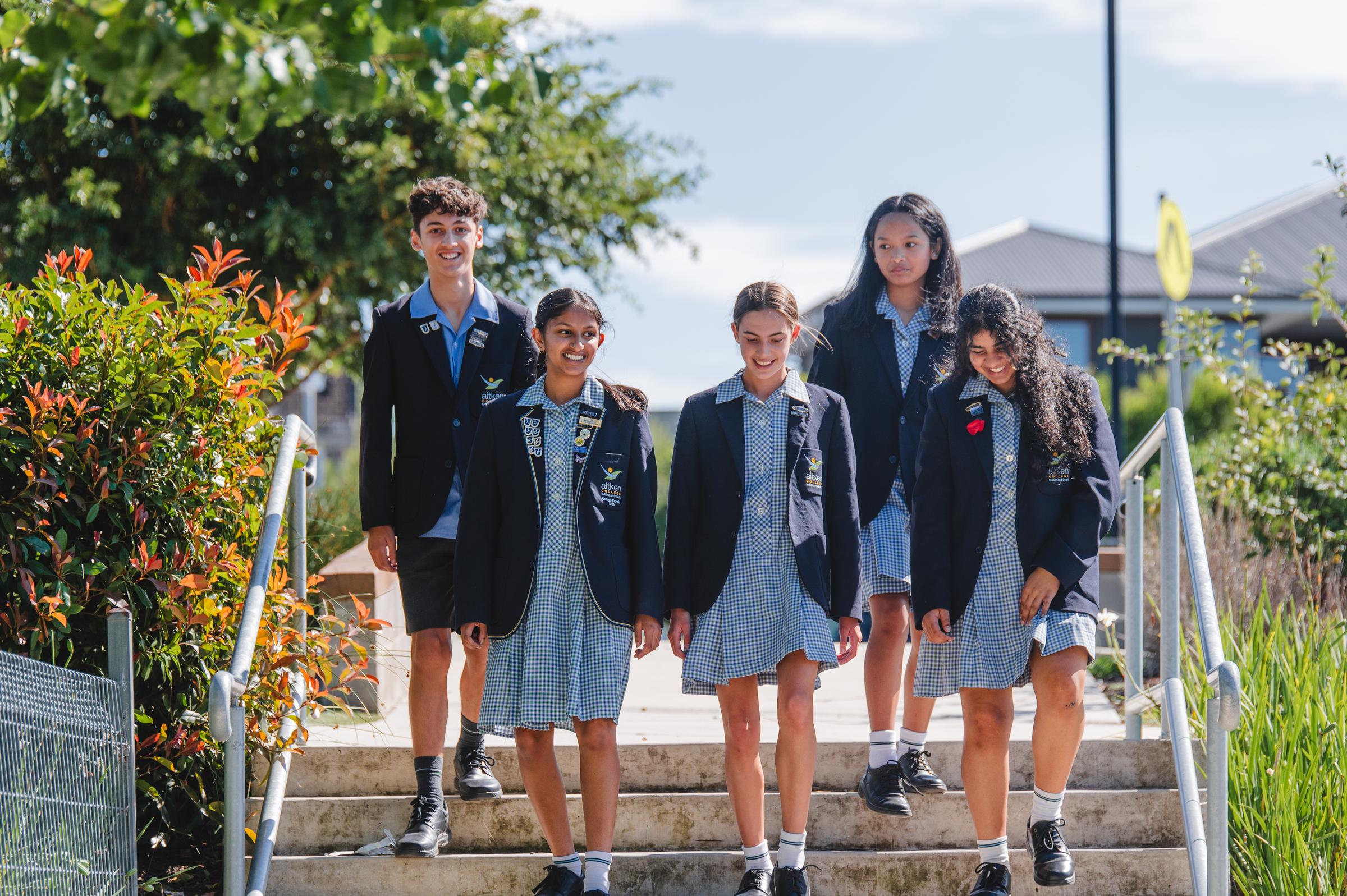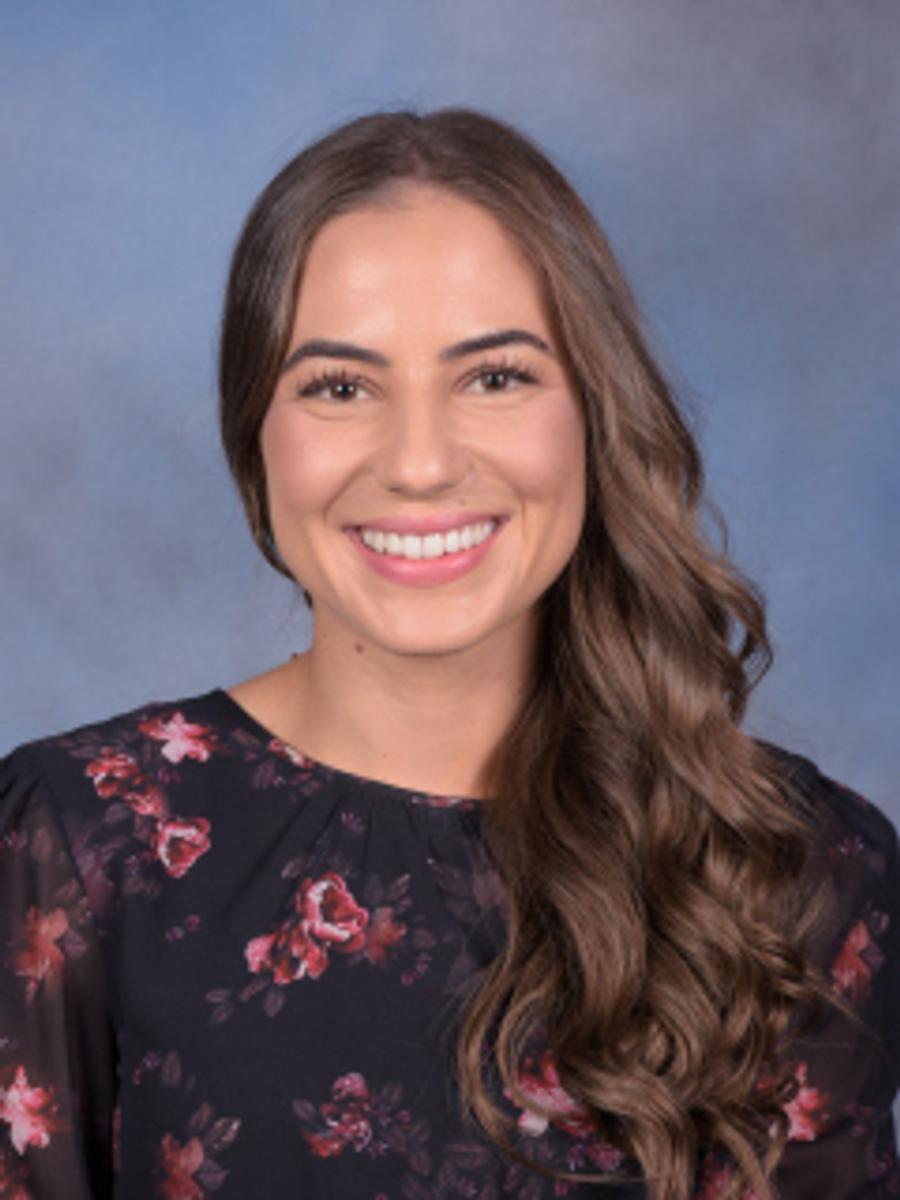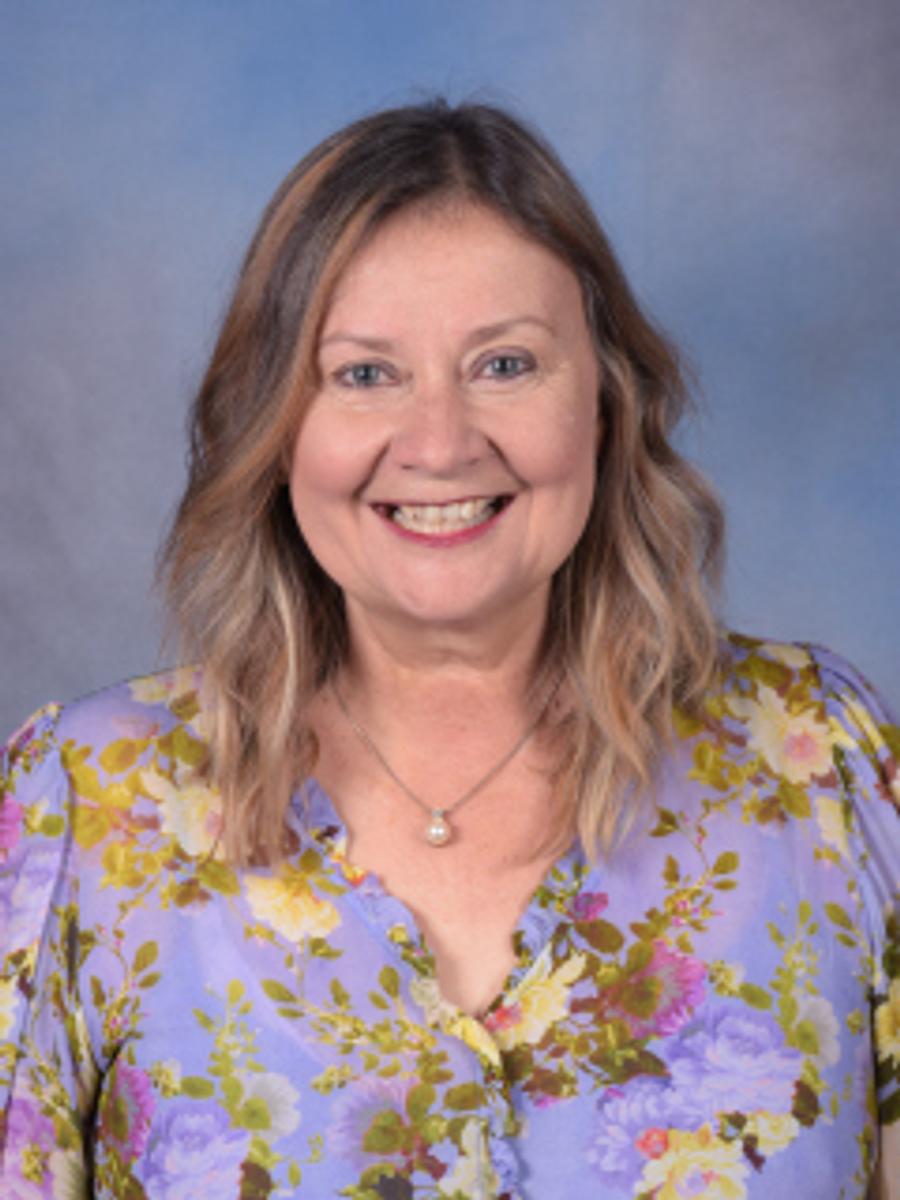Secondary

Mr Chris Graham
Assistant Principal (Secondary)
Pray as though everything depended on God. Work as though everything depended on you. - St Augustine of Hippo
The return journey paradox
As we’re coming up to the holidays, many of you will be taking time as a family for a well earned holiday. We wish you a time of refreshment and joy. One of the interesting things about holidays is that the journey to the holiday often seems to take longer than the journey home. Many of you can remember a time when you were really excited to journey to a new and exciting holiday destination. Generally, when we are journeying to our destination, we are fully present, taking in all the landmarks, the trees, the mountains, noticing the way the sun reflects on a large body of water. However, on the way home, our minds are often in a state of reflection, remembering and reminiscing about our holiday, which is now in the past.
This can often account for the return journey ‘seeming’ to be shorter, even though it is the exact same distance and takes exactly the same time. The same can often be true of semesters in a school, particularly for our year 12 students.
Year 12 students can often be heard saying that their final year of schooling was their fastest, particularly the second semester. This often is true for student experiences in other year levels. While the end of the year seems a long way off, it’s important for students not to put off things that will help them at the end of the year.
Our three week break is a great time for students to be able to switch off and energise (something we really encourage). However, it is also long enough that students should be putting aside some time to prepare for their second semester. In particular, our Dunhelen students because this year is their first ever end of year examinations. Throughout the year, our students have been learning how to study using the ‘A Learners Toolkit’. One particular strategy that has a great impact is what we call ‘spacing’. This is where students study smaller, regular amounts of information over a longer period of time. Studying in this way helps students with the retention and recall of information. In layman’s terms, it means not leaving things to the last minute and ‘cramming’.
I would encourage students to take some time over these holidays to review and revise information that has been taught during the first and second terms, as our end of year exams will include questions from information taught in both Semester One and Two.
As we reach the halfway point of this year, we don’t want students to be lulled into a false sense of security regarding their studies (e.g., ‘I don’t have to study; the exams are a long way off’). This is especially true considering that the return journey paradox can often occur in second semesters.
As a school, we wish you all the best and look forward to seeing you all again, refreshed and energised, in the new term.
Dean Taylor
Deputy Head of Secondary (Senior School Culture)
Student Use of AI
With students' increased reliance on technology, the inappropriate use of Artificial Intelligence to complete assignments is becoming increasingly common.
While AI can improve many aspects of our lives, there are risks to depending on AI to fulfil assessment tasks, particularly regarding the completion of a student's VCE.
The use of AI in completing school-assessed coursework (SACs) undermines the validity of a student's work and the integrity of the assessment process.
These assessments are designed to measure each student's own development and comprehension, and when AI is used, it encourages the generic output of work instead of personal growth and improvement. This damages the value of education, lowering engagement with the subject matter and stunting the development of essential skills like critical thinking and problem-solving.
Students should understand that using AI in any aspect of their assessment breaches the College's plagiarism policy and VCAA assessment guidelines.
EXAMS
Year 10 and 11 exams have concluded for Semester One, and students should be commended for their approach and achievement during such a high-stakes time in their schooling. The exam attendance rate was outstanding, as was the students' use of time during study sessions.
Students were invited to attend some VIBES sessions (Valuable Insights for Better Exam Success) at lunchtime to prepare for these exams. The VIBES presentations to Year 10 and 11 students focused on essential skills to help them prepare for revision and exams. Key topics included effective time management techniques, such as creating a study schedule and setting realistic goals. Strategies for answering questions were also covered, emphasizing the importance of understanding the question, planning answers, and reviewing work. Note-taking tips highlighted methods to organize and retain information, making revision more efficient. Additionally, the presentations addressed common misconceptions about studying, like the myth of multitasking and the overestimation of passive review, encouraging students to engage actively with their material for better results.
General Achievement Test
All Year 12 students and Year 11 students completing an accelerated subject have completed the General Achievement Test (GAT), contributing to their final assessment. The test provides a comprehensive assessment of a student's knowledge and abilities across various subjects, including English, Mathematics, and Reasoning. It is designed to help students demonstrate their skills and knowledge in a fair and equitable way, providing a valuable resource for universities and employers seeking to understand a student's academic abilities. Students were rewarded with a fantastic lunch for their efforts during such a demanding day.
Ms Merjam Mujkanovic
Deputy Head of Secondary (Middle School Culture)
This week marks the conclusion of Semester One at Dunhelen! It has been an enriching and enjoyable period filled with various experiences and learning opportunities for our students. We are immensely proud of our students for successfully settling into their new homerooms, forming new friendships, and developing positive connections with both their homeroom and subject teachers.
We extend a special commendation to our Year 7 students for bravely completing their first semester of high school. We eagerly anticipate the growth and achievements that the next semester will bring.
As we enter the holiday period, we encourage our students to have a restful break and spend some time reading independently. With exams approaching at the end of the year, we also advise students to review content from Terms 1 and 2 over the holidays to stay prepared.
Learner's Toolkit - Year 7
As a school, we are always on the lookout for innovative methods to enhance our students' learning experiences. This year, we are excited to introduce the Learner's Toolkit to our Year 7 cohort. Designed to equip students with essential skills for academic success, the Learner's Toolkit is a comprehensive resource that empowers young learners to take charge of their education.
What is the Learner’s Toolkit?
The Learner’s Toolkit comprises of cognitive and study strategies such as:
- Read It
- Retrieve It
- Space It
- Jumble It
- Visualise It
- Connect It
Our Year 7 students have embraced the Learner's Toolkit with enthusiasm. Teachers have integrated Toolkit activities into their regular lesson plans, ensuring that students receive consistent practice in these vital skills. In particular, the Year 7 Homeroom teachers have been actively promoting the toolkit during their Life Skills sessions.
The feedback from both students and teachers has been overwhelmingly positive. Students appreciate the practical nature of the Learner's Toolkit and feel more equipped to handle their academic responsibilities. Teachers have noted an improvement in students' organisational skills and overall classroom participation.
We are proud of our Year 7 students for their dedication and look forward to seeing them grow into confident, independent learners.
Ms Abigail Bose
Head of Year 7
Preparing for City Experience - Year 8
Our Year 8 students have had an amazing year so far, which is only going to get better next term as they prepare for City Experience! The Year 8 City Experience at Aitken College is a hands-on, integrated learning program held in Melbourne. Students visit the city in pre-organised groups, exploring cultural sites and learning about our city's diversity. The program fosters teamwork, resilience, and independence, offering real-life applications of school subjects and enhancing students' sense of responsibility and leadership through an inquiry-based project.
During the upcoming term break, you can assist your child in getting ready for a city adventure in Melbourne with a mix of preparation and interactive learning. To kick things off, parents can introduce their children to the city’s public transportation system by travelling to Melbourne CBD using a bus, train and tram and, ultimately, educating them about how to get around town. As Melbourne’s public transport network includes trains, trams and buses, which all require a Myki card for travel, parents can ensure their children learn how to ‘top up’ a Myki card and use one appropriately at relevant stations. Parents can also guide their children on how to interpret transport maps and timetables via the Public Transport Victoria (PTV) mobile phone app, operate the myki machines and the importance of safety and good manners while using transport.
To boost confidence levels, parents are encouraged to organise some trial runs during the holidays with their children, where they can explore different routes, modes of transport and landmarks. These mini adventures could involve taking them to known city landmarks. Some of the ones that they will visit on City Experience include Eureka Skydeck, Chinatown, Flinders Street and more.
Please have conversations with your child about navigating the city, discuss how to recognise landmarks, use GPS features on their phones and the importance of staying alert in their surroundings. This will give our students a sense of security and comfort.
Mr Jason Mackrell
Head of Year 8
Dunhelen Captains Year 9 Camp Reflection
This semester, Year 9 camp was an amazing adventure. Seeing Uluru was a once-in-a-lifetime experience! Having to be on a bus for hours with loud children was tiring, and we don’t know how the teachers do it on a daily basis, but it made the experience much more fun and memorable. Tents turned out to be more comfortable than we were expecting, and the biggest challenge was actually the flies. We would definitely recommend next year’s campers bring fly nets to improve their outdoor experiences. We can’t wait to hear about everyone’s experiences next year!
Below are some of the other Year 9 students’ favourite parts about camp:
- ‘My trip on the plane ride home, which was really fun’ – Advit
- ‘Our visit to Uluru as it was interesting’ – Caprice
- ‘Watching movies and watching games on the bus’ – Mia
- ‘It was fun to have a great bonding session with friends for a week’ – Dinara
- ‘Going to the beach in Adelaide with friends’ – Rahni
Mr Peter Francey - Head of Year 9
Shiloh D & Lachlan R - Dunhelen School Captains
Innovative Learning Opportunity at Aitken College
A new, enriching educational opportunity for our Year 10 students is being proposed for the 2025 Year 10 cohort. Students in Year 9 were recently informed about a proposal to create a new Year 10 Geography class in 2025 using the Content and Language Integrated Learning (CLIL) method, with Indonesian as the language of instruction.
CLIL is a dual-focused approach in which an additional language is used to learn and teach both content and language. This innovative method enhances students' language skills while deepening their understanding of the subject matter.
Key benefits of this include:
- Enhanced Language Proficiency: Immersion in a subject taught in Indonesian develops a profound and practical understanding of the language.
- Improved Cognitive Skills: CLIL enhances cognitive skills, including problem-solving, critical thinking, and creativity.
- Increased Cultural Awareness: Learning Geography in Indonesian fosters a broader global outlook and intercultural understanding.
- Flexibility in Elective Choices: This class can free up an elective choice for students wishing to continue their Indonesian studies in VCE.
The CLIL Geography class will be available during semester two only. Students wishing to be in this class can indicate their preference on their subject selection form in Term 3. We believe this approach will provide a unique and valuable learning experience. If you would like more information about this proposal, please email srogers@aitkencollege.edu.au.
Mr Steve Rogers
Head of Faculty - Languages
Mrs Jenny Lilley
Head of Faculty - Vocational Major
Structured Workplace Learning (SWL) takes place for the VCE VM students during Terms 2, 3 and 4. This is an appropriate and valuable component that involves on-the-job training in which students are required to master a designated set of skills and competencies related to the VCE VET programs. SWL experiences help students relate theory to a real-world work environment while developing numerous skills.
This term, students are working at various placements, including at a florist, a skin and laser clinic, with an electrician, an accountant, a plumber, a beauty salon, car tinting, a hair salon, physio care, rehabilitation services, and animal welfare.
Tymanie G is making the most of her experience at a florist shop where she has been preparing and processing fresh stock, visiting the grower's market, doing the visual merchandising, orders, sales, gift cards, and handling customer inquiries.











